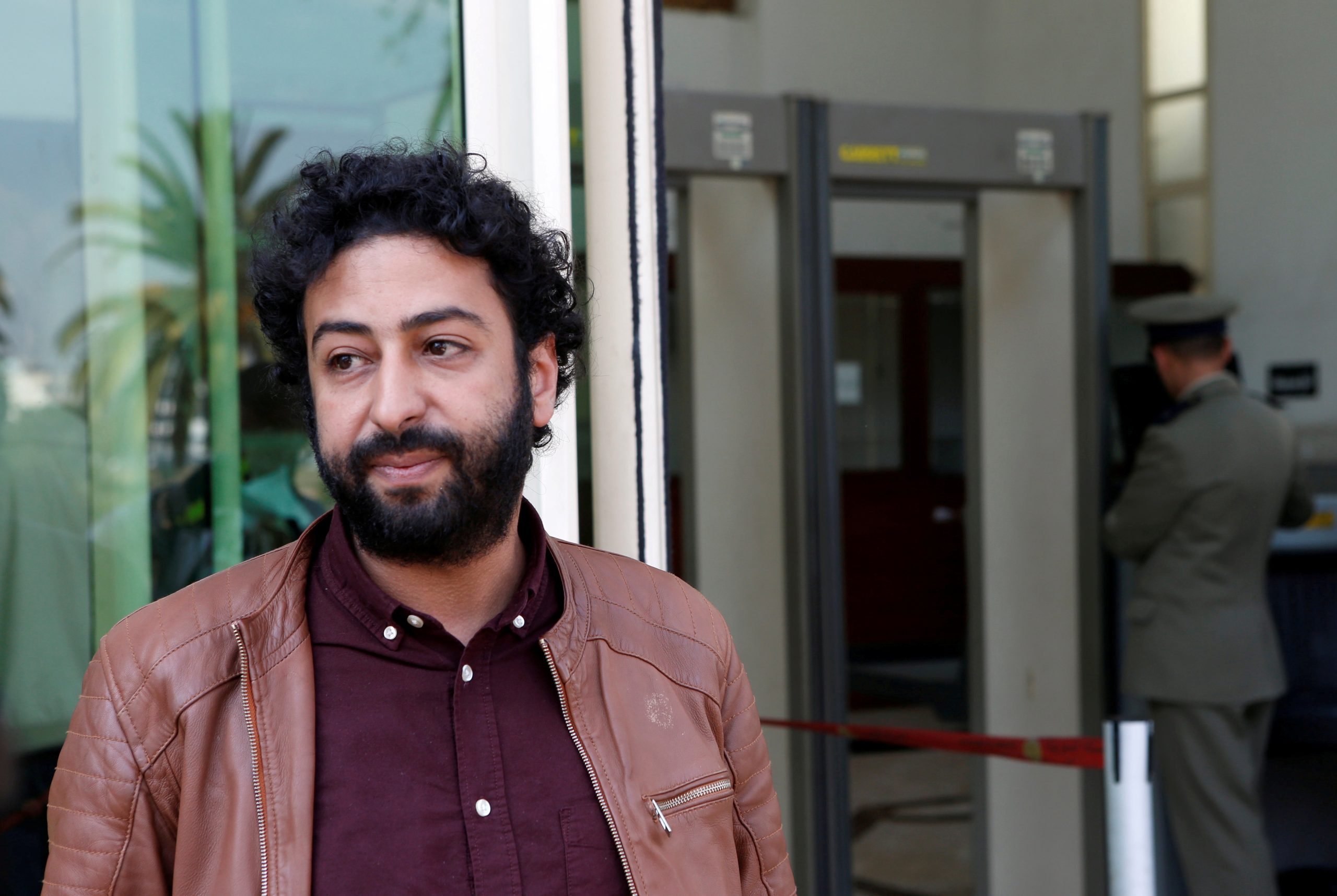Photo by REUTERS/Youssef Boudlal
Investigative journalist Omar Radi, who was previously on hunger strike, has been convicted in Morocco of rape and national security offenses.
He has been sentenced to 6 years in prison after being held in pretrial detention for nearly a year. His conviction follows another recent conviction of a journalist on similar charges, who has also been critical of the government. The case against Mr. Radi was initiated shortly after allegations emerged that the Moroccan authorities were monitoring his phone.
“Credible allegations of rape should be investigated, but the court limited Mr. Radi’s ability to present evidence in his defense. This is especially concerning in light of a recent pattern in Morocco of convicting journalists on similar charges,” said Professor Hannah Garry, Director of the University of Southern California’s Gould School of Law Human Rights Clinic, which monitored the trial as part of the Clooney Foundation for Justice’s TrialWatch initiative.
Based on reports from TrialWatch’s monitors inside the courtroom, the court’s treatment of evidence was unacceptable throughout the proceedings. Mr. Radi was not allowed to call a number of key witnesses, including Arnaud Simons—the man the prosecution said was Mr. Radi’s Dutch intelligence ‘handler’ as part of the national security allegations against him. This was despite the fact Mr. Simons identified himself publicly, volunteered to testify, and said the allegations against Mr. Radi were not true.
“The prosecution presented little evidence that Mr. Radi did anything other than journalistic and investigative work. It is hard to see the basis for convicting him of national security offenses,” said Professor Garry. “Further, it is deeply concerning that Mr. Radi has been held in detention before and during trial for nearly a year”.
Background
Omar Radi, 35, is a Moroccan journalist who has exposed, and is an outspoken critic of, government corruption. In this capacity, he has collaborated with various Moroccan and international media.
Prior to his trial, the only witness to the alleged rape, Imad Stitou, was added to the case as a co-accused. There are concerns that this was done because his testimony corroborated Omar Radi’s version of events and making him a co-accused reduced the weight of his testimony. Further, medical evidence concerning the alleged rape was filed without the knowledge of the defense and after the investigation had concluded, and was not translated into Arabic, despite a request by the defense. The court also did not allow the defense to call an expert to probe the medical evidence.
In recent years, Morocco has escalated its crack down on independent journalism. On July 12, 2021, the U.S. Department of State noted that it was following Mr. Radi’s case in the context of broader concerns about “freedom of expression and freedom of association in Morocco.” The Committee to Protect Journalists has recounted that “Moroccan authorities are using trumped up sexual assault and ‘morals’ charges to retaliate” against journalists.
Before and during trial, Mr. Radi repeatedly sought release on bail. He was detained ostensibly because of a threat that he could interfere with the investigation. As the trial progressed, the court’s periodic review of the need for his detention was cursory and the defense has alleged that he was not being provided with necessary medical treatment.
Under the national security charges, the prosecution alleged Mr. Radi had received funds from the Bertha Foundation despite ‘not doing any work for them. Mr. Radi testified that he had obtained a fellowship from the Foundation, and the Bertha Foundation confirmed he was indeed a fellow. The prosecution also said he had worked for a person named Clive Newell, with alleged links to the UK government, and that he had contact with several Dutch diplomats, at least one of whom they suggested was an intelligence agent. Mr. Radi said he had been doing ‘economic due diligence’ on the Moroccan banking sector for the private consulting company with which Mr. Newell was affiliated and that he had “nothing to do with the business” of Clive Newell. He said to his knowledge the Dutch people he was in contact with were diplomats.
With respect to the rape charge, the prosecution relied on a statement in the case file from a man who said he had been on a video call with Mr. Radi’s accuser immediately prior to the alleged rape. Mr. Radi’s defense team questioned the legitimacy of this witness’s statement, as he was in the U.S. when he allegedly received the call, but apparently recorded his statement in Morocco during a time when borders were closed and the courts in recess due to COVID-19.
Mr. Radi has denied the allegations, saying the encounter had been consensual. Imad Stitou, the defense witness who became a co-accused in these proceedings, said he was present in the room at the time and testified that he had heard sounds of a consensual encounter. Mr. Stitou was also ultimately convicted for his alleged role.
